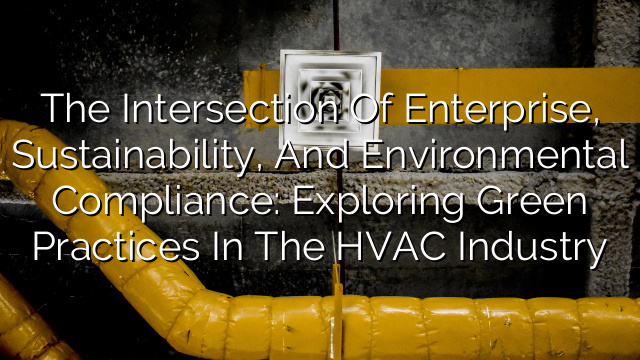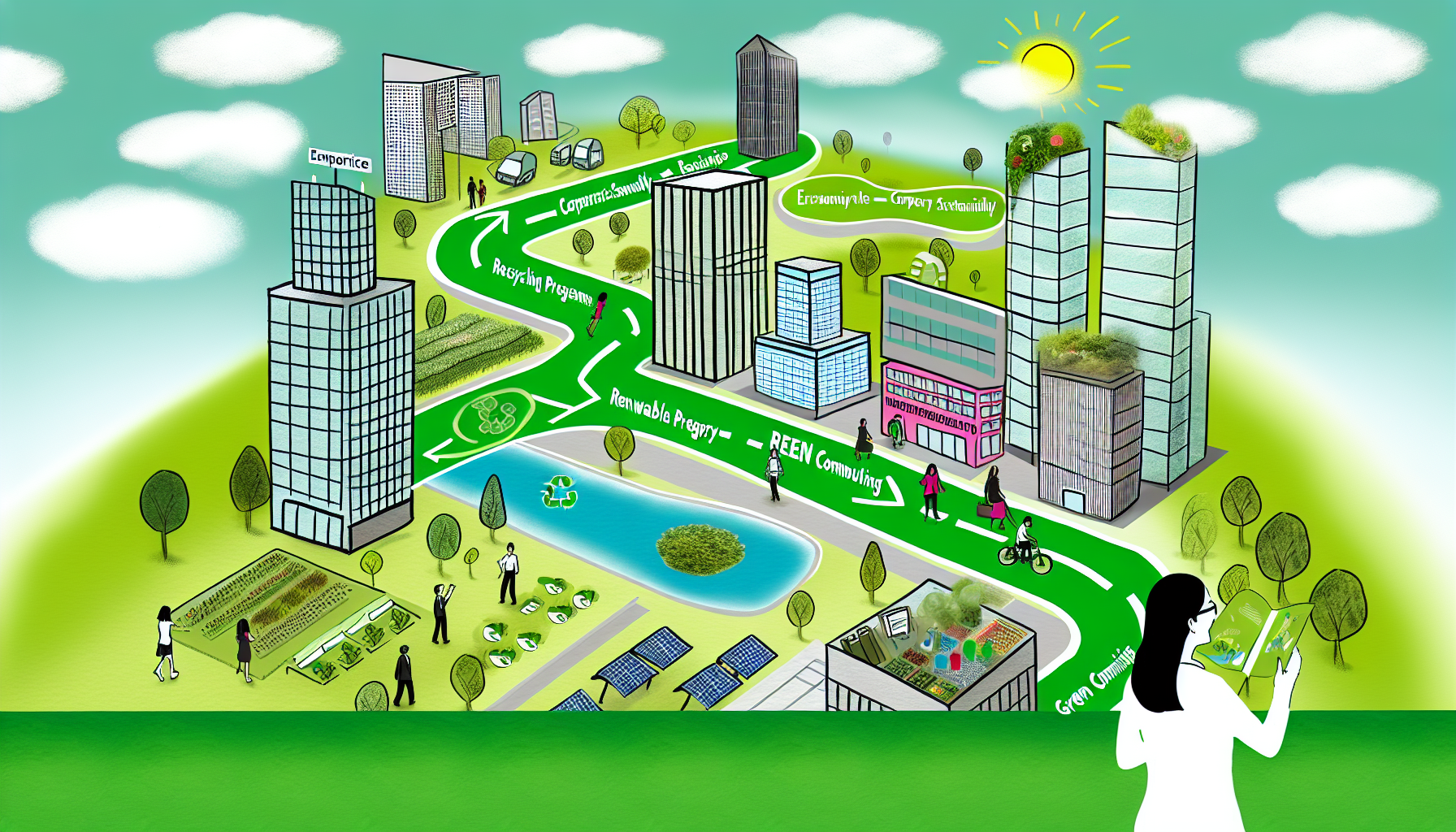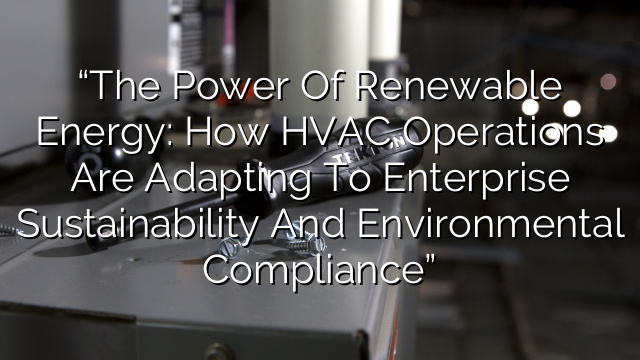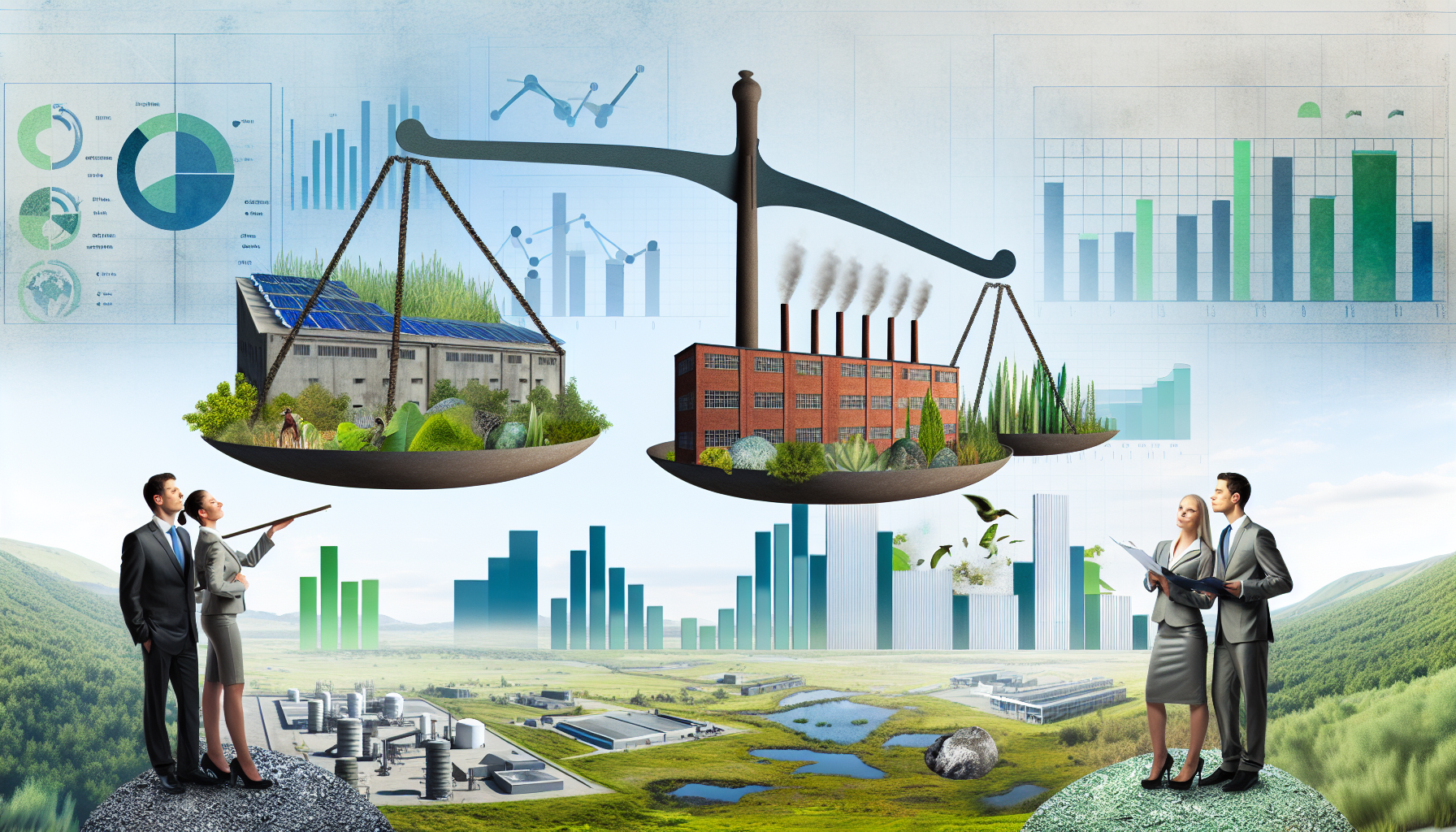Introduction
In recent years, there has been a significant push for businesses to adopt sustainable practices and prioritize environmental compliance. This trend is particularly evident in the HVAC industry, where companies are looking for ways to reduce their carbon footprint and contribute to a greener future. In this blog post, we will explore the intersection of enterprise, sustainability, and environmental compliance in the HVAC industry and highlight some of the green practices that are being implemented by HVAC companies.
The Importance of Sustainability in the HVAC Industry
The HVAC industry plays a crucial role in building sustainability, as heating, ventilation, and air conditioning systems are responsible for a significant portion of a building’s energy consumption. By implementing sustainable practices, HVAC companies can help reduce the overall environmental impact of buildings and contribute to a more energy-efficient future.
One of the key aspects of sustainability in the HVAC industry is energy efficiency. HVAC companies are investing in the development of energy-efficient systems and technologies that can minimize energy consumption while still meeting the comfort needs of building occupants. These energy-efficient systems not only help reduce greenhouse gas emissions but also lead to cost savings for businesses and homeowners.
The Role of Environmental Compliance in the HVAC Industry
In addition to sustainability, environmental compliance is another important aspect of the HVAC industry. HVAC companies are required to adhere to various regulations and standards aimed at protecting the environment and ensuring the responsible handling of refrigerants and other hazardous materials.
These regulations include requirements for the proper disposal of refrigerants, the prevention of refrigerant leaks, and the use of environmentally friendly alternatives. By complying with these regulations, HVAC companies can contribute to the overall reduction of harmful environmental pollutants and protect the ozone layer.
Green Practices in the HVAC Industry
There are several green practices that HVAC companies are adopting to promote sustainability and environmental compliance. These practices include:
- Use of Renewable Energy Sources: HVAC companies are increasingly incorporating renewable energy sources such as solar and geothermal energy into their systems. These energy sources are clean, abundant, and can significantly reduce the carbon footprint of HVAC systems.
- Energy Recovery Ventilation: Energy recovery ventilation systems allow for the efficient exchange of indoor and outdoor air, reducing the need for excessive heating or cooling. These systems help improve indoor air quality while minimizing energy consumption.
- Smart HVAC Controls: Smart HVAC controls use advanced algorithms and sensors to optimize heating and cooling operations based on occupancy, weather conditions, and other factors. By intelligently adjusting system settings, these controls can minimize energy waste and improve overall system efficiency.
- Proper Refrigerant Management: HVAC companies are implementing strict protocols for the handling and disposal of refrigerants. These protocols ensure that refrigerants are properly recycled or disposed of in compliance with environmental regulations, preventing harm to the ozone layer and reducing greenhouse gas emissions.
- Maintenance and Regular System Inspections: Regular maintenance and inspections of HVAC systems help identify and address potential issues that can lead to energy waste or environmental pollution. By performing routine checks, HVAC companies can ensure that systems are operating at peak efficiency and in compliance with environmental regulations.
Benefits of Green Practices in the HVAC Industry
Implementing green practices in the HVAC industry offers several benefits for businesses and the environment. Some of the key benefits include:
- Cost Savings: Energy-efficient HVAC systems can significantly reduce energy consumption and lead to cost savings for businesses and homeowners. Additionally, proper refrigerant management can prevent leaks and the associated repair costs.
- Reduced Environmental Impact: Green practices in the HVAC industry contribute to the overall reduction of greenhouse gas emissions and harmful environmental pollutants. By adopting sustainable practices, HVAC companies can help protect the environment and support climate action.
- Improved Indoor Air Quality: Energy recovery ventilation and smart HVAC controls help improve indoor air quality by ensuring the efficient exchange of fresh air and minimizing the presence of pollutants. This leads to a healthier and more comfortable indoor environment for occupants.
- Enhanced Reputation: Embracing sustainability and environmental compliance can enhance the reputation of HVAC companies. Customers and stakeholders increasingly value businesses that prioritize environmental responsibility, and adopting green practices can help differentiate HVAC companies in a competitive market.
Conclusion
The intersection of enterprise, sustainability, and environmental compliance in the HVAC industry is driving the adoption of green practices that contribute to a greener future. By prioritizing energy efficiency, renewable energy sources, and proper refrigerant management, HVAC companies can reduce their carbon footprint and protect the environment. These green practices not only offer cost savings and environmental benefits but also enhance the reputation of HVAC companies in a sustainability-focused market.
FAQs
1. What is the HVAC industry?
The HVAC industry refers to the Heating, Ventilation, and Air Conditioning industry. It involves the design, installation, and maintenance of systems that control the temperature, humidity, and air quality of buildings.
2. Why is sustainability important in the HVAC industry?
Sustainability is important in the HVAC industry because heating, ventilation, and air conditioning systems are responsible for a significant portion of a building’s energy consumption. By adopting sustainable practices and energy-efficient technologies, HVAC companies can reduce energy waste and minimize their environmental impact.
3. What is environmental compliance in the HVAC industry?
Environmental compliance in the HVAC industry involves adhering to regulations and standards aimed at protecting the environment and ensuring the responsible handling of refrigerants and other hazardous materials. This includes proper disposal of refrigerants, prevention of leaks, and use of environmentally friendly alternatives.
4. How do green practices benefit HVAC companies?
Green practices benefit HVAC companies by improving energy efficiency, reducing operational costs, enhancing their reputation, and ensuring compliance with environmental regulations. These practices also contribute to a greener future and support climate action.
5. What are some examples of green practices in the HVAC industry?
Some examples of green practices in the HVAC industry include the use of renewable energy sources, energy recovery ventilation, smart HVAC controls, proper refrigerant management, and regular system maintenance and inspections.







